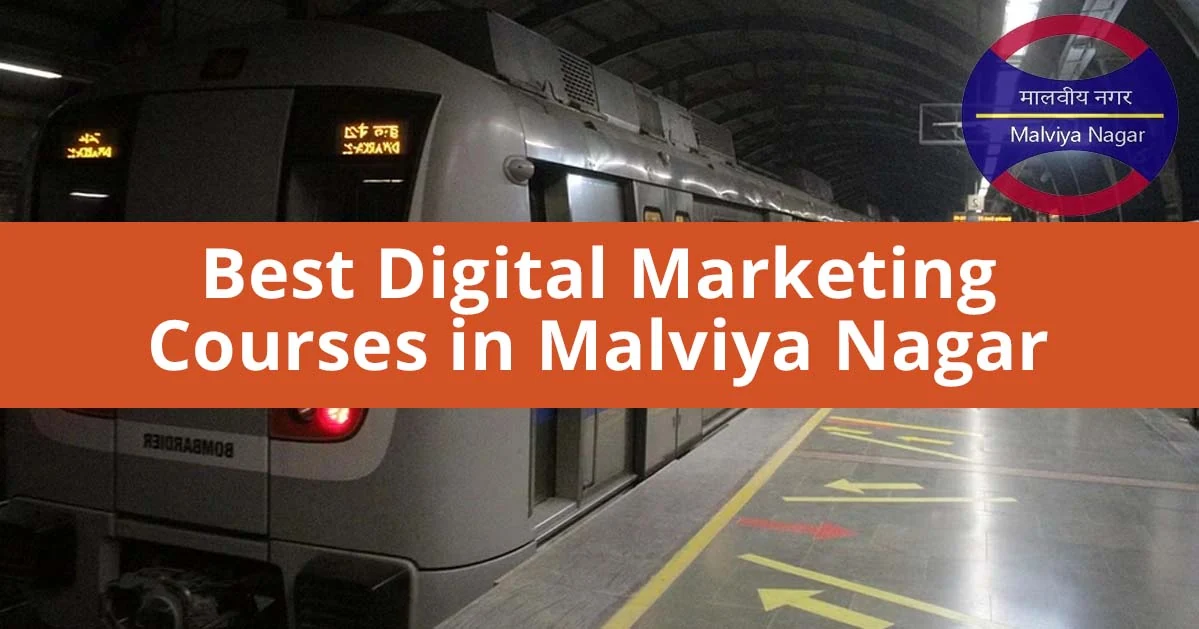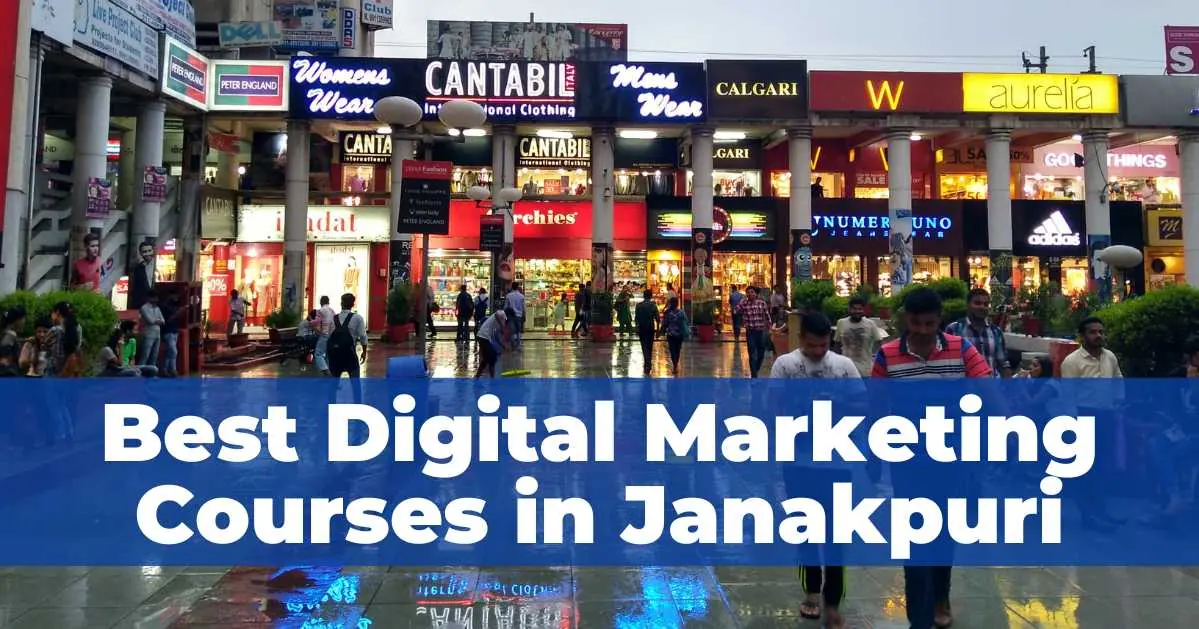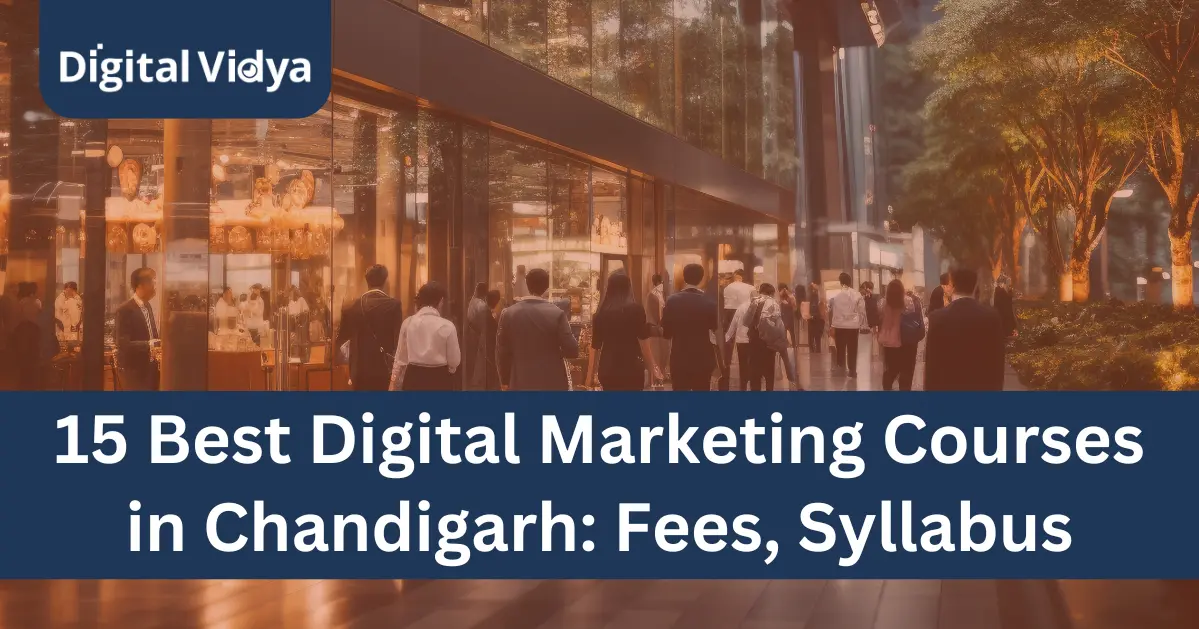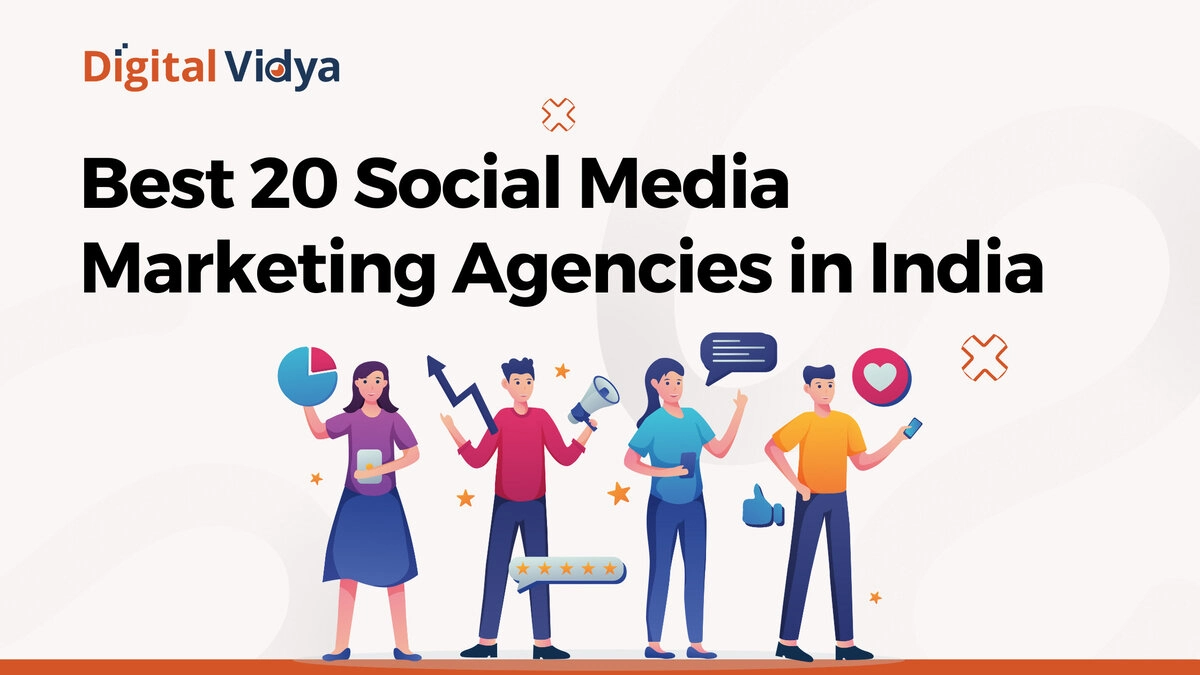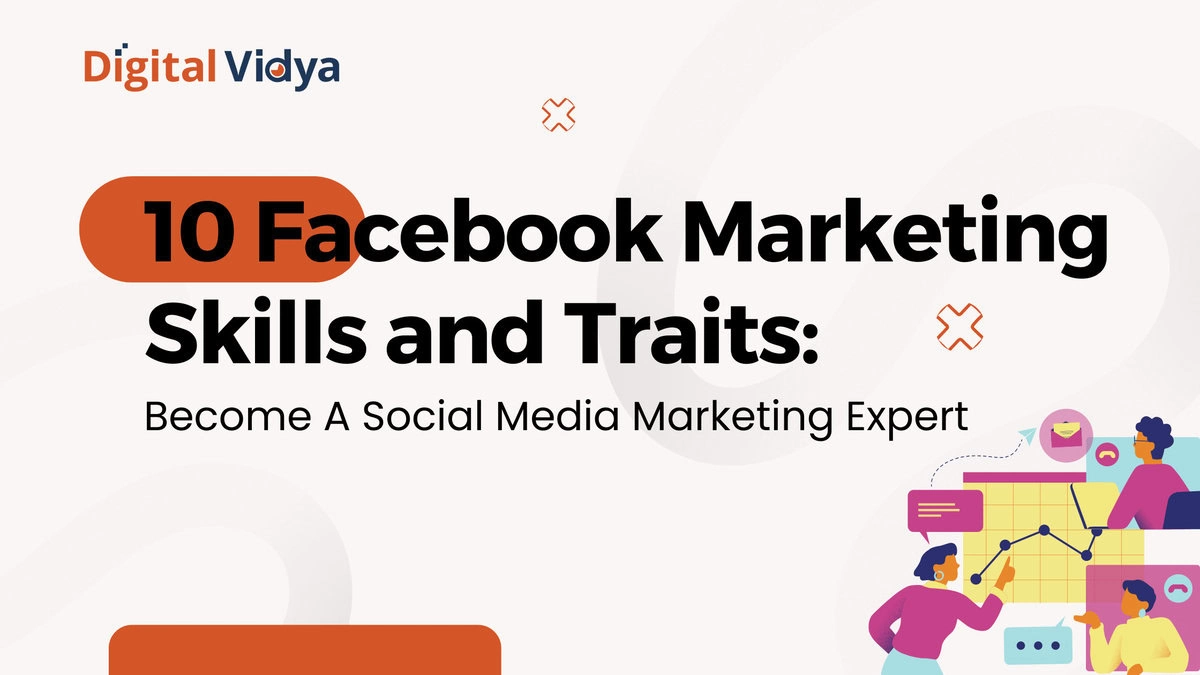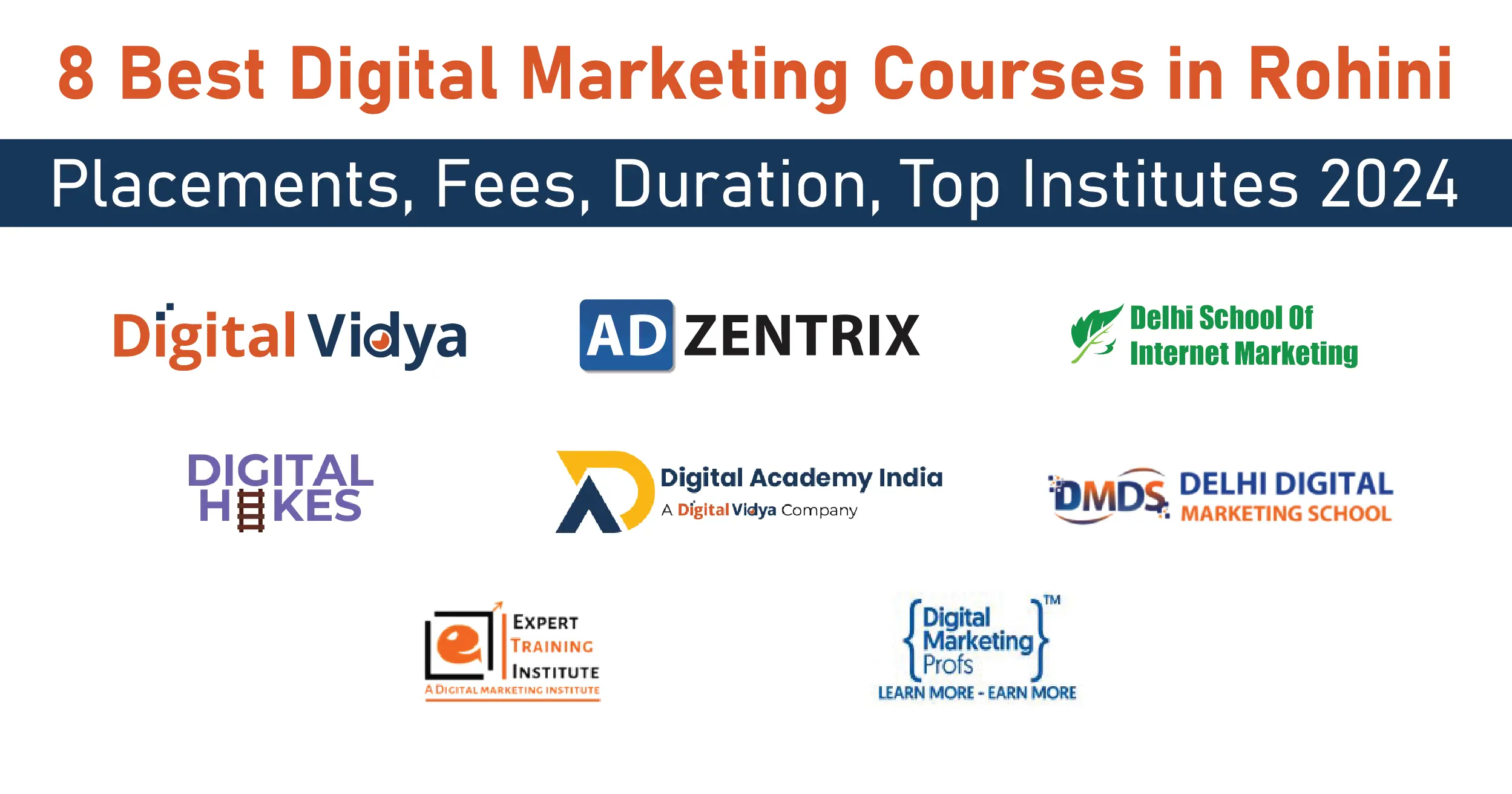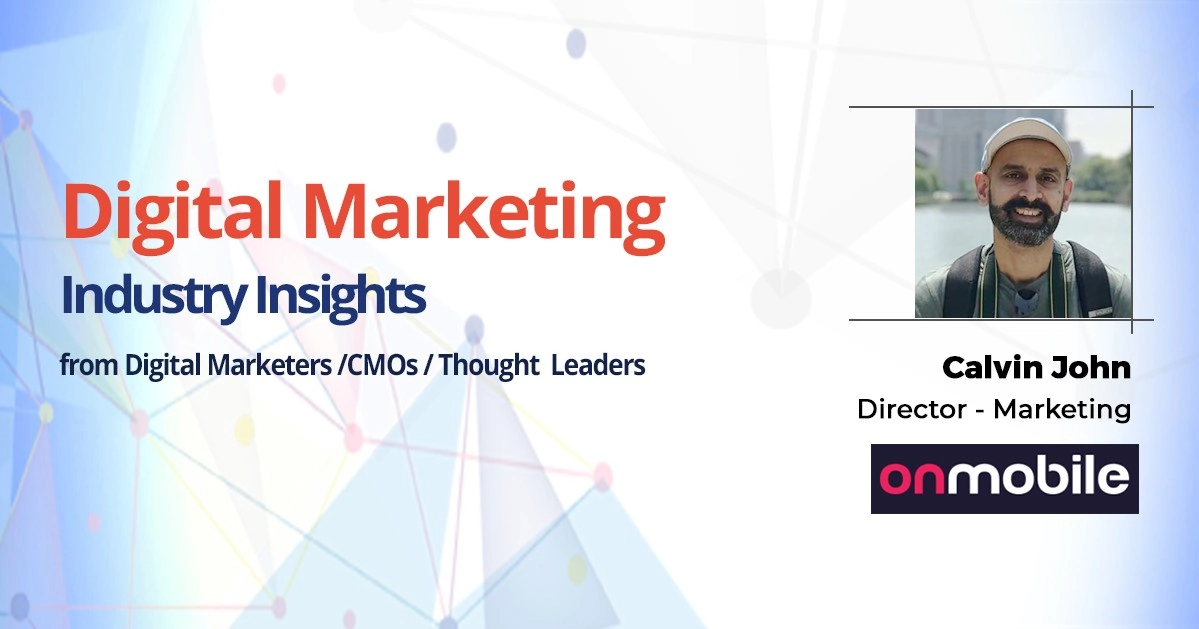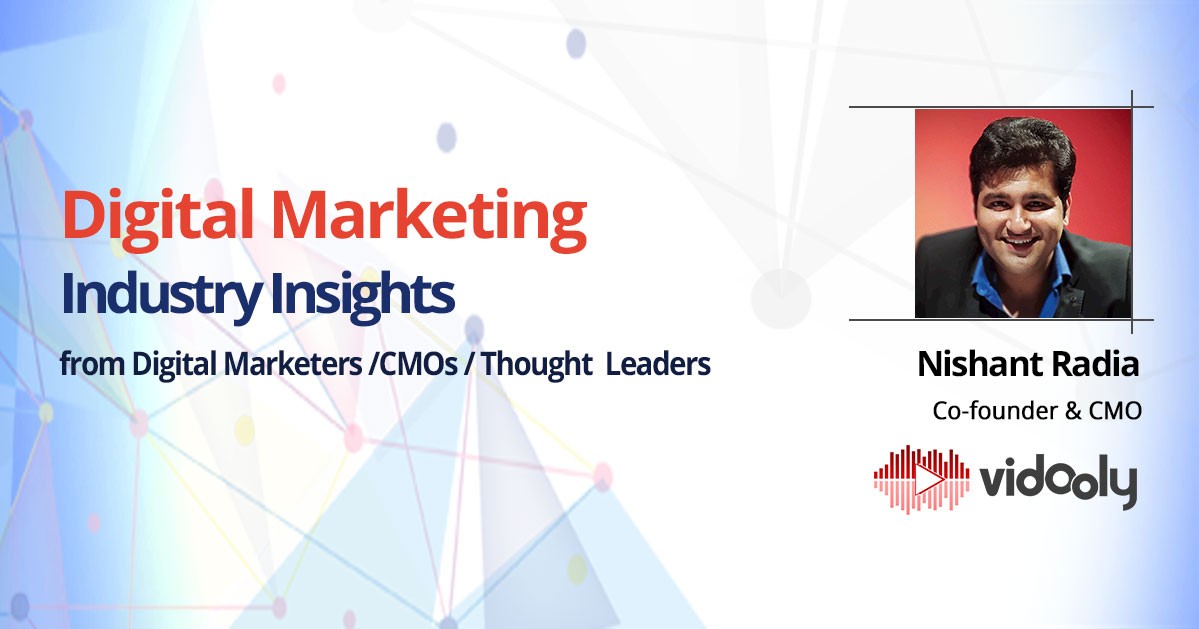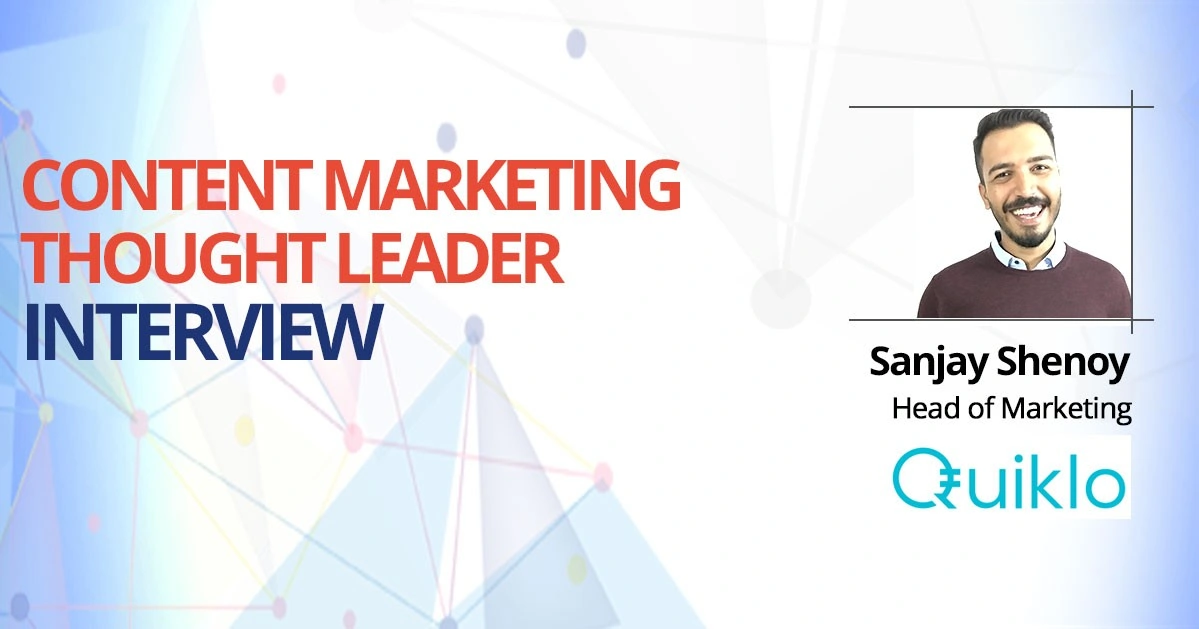Pradeep Chopra, Co-Founder at Digital Vidya: Digital Marketing is one of the key elements of any marketing plan today. “Should we include digital marketing in our plan?” is no more a question.
According to Wordstream, digital marketing constitutes 72% of the overall marketing budget.
India is the fastest-growing market in the world for Internet Advertising at a CAGR of 18.8% between 2020-2025. Ad spending on the digital medium, which was at Rs 36,544 crore in 2021 will increase to Rs 48,603 crore this year.
This rapid growth has created unprecedented demand for skilled professionals in digital marketing. No wonder, we are under-prepared to tackle this growth as far as digital marketing talent is concerned.
In this interview, I spoke to Vartika to know her views about the opportunity and the challenges thrown by the fast-growing digital marketing industry for both organizations and individuals.
In her more than 15 years of professional experience, Vartika has focused on brand and growth marketing for technology companies all over the world.
She has aided in the growth of many early-stage B2B and B2C firms, including Directi, Rocket Internet, Hike, Payoneer, Yellow.ai, and others.
In her years of experience, she’s had the opportunity to build iconic brands through digital and traditional marketing, contribute to business goals by taking P&L and revenue responsibility, building and lead stellar teams.
When was the 1st time you experienced the power of Digital Marketing? What did you feel about Digital Marketing then?
Vartika: My first experience with Digital Marketing was in 2008 when I was evangelizing the concept of owning a piece of the web, by the way of having your business’s domain name and email ID.
Since it was a market creation challenge, there was not much demand available on digital marketing channels, especially Search Engines.
So we leveraged ATL channels such as TV and Radio to entice business owners to “get your own .com” on BigRock.com and once they’d come on to the website, we could retarget them with long-form ads, offers, and reasons to buy a piece of the web, through retargeting.
The entire concept of marketing to an audience across channels, with messages pertaining to their buying cycle, had me awe-struck.
As a marketer very early in my career, I felt the power of combining ATL, BTL with Digital to never lose track of a prospect.
What do you think is your greatest achievement in Digital Marketing to date?
Vartika: My greatest achievement in digital marketing would be to drive the entire organization on the same page and drive cross-team efficiency. Let’s look at a few tenets:
(i) Positioning & Messaging:
No amount of research and user study can simulate 100% of the real-world environment. Leveraging Digital Marketing which is faster, more agile, and cheaper, I’ve been able to drive experiments that let an organization fail fast, fail cheap; scale fast, and scale effectively. It’s easier to run A/B tests on the website to test the messaging, make smaller videos, and run them as ads on YouTube to see the response for a major TVC.
(ii) Helping teams beyond marketing:
The insights drawn from digital experiments when shared with the Sales and Product Teams can drive organizational effectiveness in selling the right products to the right person, in the right context thereby helping reduce sales cycles/increase ARR, build products that are more in demand, and so on.
(iii) Scaling to newer markets:
If what you’re marketing is of global relevance, there’s no better GTM strategy than to build it digital-first. For instance, in 2019, when I was building the entire Digital Marketing practice at Yellow.ai, I noticed that while our core markets were India and Indonesia, many other markets were showing a demand for what we were selling – LatAm, Middle East, USA, Europe, UK, China and so on.
With digital marketing, we were able to run campaigns in pockets – South Africa, Nigeria, Kenya, London, Saudi, UAE, Qatar, and so on. See the entire conversion funnel, build supporting sales teams to cater to the demand, and scale from there.
(iv) Organizational impact:
In a fast-growing B2B SaaS organization, it won’t come as a surprise to see Marketing contribute upwards of 40% of the CARR. All of this is possible due to the scale and cost-effectiveness of driving digital markets on budget across $500 to $25M.
Modern marketers have become an extension of the:
- sales teams by the virtue of being able to share revenue targets,
- product teams by driving insights about the demand for products/features across markets, verticals, etc
- customer-success teams by driving higher renewals and upsells through targetted ABM campaigns
- founder’s office by driving new market expansion and diversification strategies.
According to you, in what kind of situations, conventional marketing techniques (e.g. Newspaper/TV) are still valuable?
Vartika: The entire debate between offline marketing versus online marketing is moot. Marketers have to advertise on the channels wherever their prospects are, in the most effective manner.
Here’s when you need to choose the older marketing channels:
- Market Creation: If your product has a mass appeal, and is absolutely revolutionary and not too many people are aware of it, to build trust and reach a wider audience, the use of TV, Radio, Print Media, and Public Relations may become imperative
- Vast Market: In terms of reach, if your product can have a wider purchase net, evaluate the cost per reach across ATL and Digital and then decide on the media-mix
- Build Trust: Trust builds over time and conventional media usage done right, can still grab a higher recall and build credibility and resonate with the audience, that the brand is here to stay.
How do you think Digital Marketing for B2B is different from Digital Marketing for B2C?
Vartika: Marketing to either B2B or B2C audiences will have the same basic principles – segmenting the audience, messaging and positioning for the audience, and marketing to the audience via media that they frequent.
And while the basic principles are the same, there is a distinction in the audience’s needs, and marketers must adapt to that.
According to you, what are the top 3 mistakes committed by organizations today in leveraging Digital Marketing?
Vartika: Digital Marketing is a part of the process of achieving certain ARR from the spending done, attracting the right prospects, with the right context, and connecting them to the right people inside the organization to take the process further. In light of this, I’d encourage more and more marketers to do the following:
(i) Market with a purpose: If you’re advertising to create demand, capture demand, or influence an upsell, spend some time wearing the Chief Revenue Officer’s hat and evaluate what is the expected outcome in terms of revenue, how much is the spending going to be, what is the Spend: Revenue ratio, can the organization grow at that ratio for 6 months – 12 months? This planning will help you align your further activities and even re-purpose the marketing team’s efforts.
(ii) Keep track of all the revenue channels: If there are multiple channels and multiple markets of revenue generation, keep track of all the channels and markets and assess where Digital Marketing is pivotal versus essential versus an add-on and good-to-have channel. This way, you can evaluate the entire revenue funnel of the organization and invest efforts and dollars where it’ll be most appreciated and valued. If in a certain market, the sales team’s revenue is meeting the targets and in another, marketing is able to influence a higher revenue contribution, then in partnership with the sales leader, budgets can be rejigged to focus more on SDRs in a region versus on performance marketing in another.
(iii) Keep your eyes on the full funnel: Generating demand, capturing the demand, and influencing the prospect is what Digital Marketing can do. At one point, the prospect is handed over to the sales team. It is imperative that marketers expand their horizons beyond marketing to see the full-funnel movement. From evaluating leads by channel conversion to leads by country conversion to unqualified leads by channel, all of these analysis pointers are going to help craft a better digital marketing blueprint.
What do you recommend between outsourcing Digital Marketing to an Agency or doing it in-house?
Vartika: I am a strong believer in keeping your core engines of growth in-house and having a closer connection with cross-teams such as Sales, Product, Strategy, and Operations.
If digital marketing is a core growth engine, I’d suggest finding specialists in the sub-sources that are working for the organization and building that capability in-house.
Which are your favorite Digital Marketing channels/techniques (e.g. LinkedIn, SEO, Facebook Ads) and why?
Vartika: A marketer cannot have a favorite channel as they should follow wherever the audience is. Leveraging the right channels and optimizing the overall cross-channel strategy has been thrilling for me as a marketer.
Mapping the entire prospect journey across Content Marketing, Organic Marketing, Digital Marketing, Field Marketing, and Sales team alignment with the messaging, positioning, and product to pitch is where most marketers will find themselves successful.
Why do you think most marketers bet heavily on “online advertising” as part of their digital marketing strategy? Do you think that the resource allocation including budget distribution between Online Ads and SEO/Organic is justified?
Vartika: Organic marketing should not be looked at from the lens of just SEO cost. The resource cost of SEO managers and executives, content writers, PR managers, graphic designers, video and motion media, UI/UX, copywriters, Podcast hosts, Own-event expenses, and product marketers, all should be looked at as the cost of Organic Marketing.
Furthermore, organic marketing has to be done right and the performance marketing channels should be leveraged well to amplify that.
If the website functioning, messaging and positioning, content, conversion rate optimization, graphics, and videos are not up to the mark, then both Organic and Performance marketing will be adversely affected.
And if organic marketing is on its own performing well, then digital marketers can more successfully amplify that across markets, delivering overall success to the wider organization.
What do you think is the role of technology in marketing in today’s world? Would you like to share any good examples in which technology is efficiently leveraged for the success of marketing?
Vartika: The entire mobile-first internet user base has burgeoned across the world and has given way to the innovation of new business models. With millions of people using the internet through their mobile, the opportunities for industries to reach audiences on a new channel across fin-tech, retail, education, e-commerce, digital content platforms, and more industries are today possible.
With advancements in digital payments and customer adoption of the same, in a post-pandemic world, marketers are able to fulfill the entire journey from awareness to interest to purchase and consumption.
And to reach the right prospect and the right time, many companies are building their own detailed CDP (Customer Data Platform) or leveraging CDP SaaS platforms and advertising platforms that have user persona targeting embedded.
With CDP and persona targeting, marketing has become more personalized and effective, if done right. There are segmentation and retention platforms that allow you to identify the prospects that are likely to engage and convert.
To add to it, the advancements in Artificial Intelligence platforms are allowing marketers to engage with their customers across channels, with natural language technology, and personalized conversations that deliver value and are proving to strengthen brand-customer relationships.
And leveraging APIs of various service providers, and seeing all of these data pointers in the CRM has led marketers to have a 360-degree view of interactions that the customers have had and predict outcomes.
All of the above coming together… that’s powerful.
Which are your favorite Digital Marketing Tools and why?
Vartika: The mar-tech stack has become so big and complex that I don’t think I’m in a position to comment on the entire realm of Digital Marketing tools.
There are some tools that do emails right, some that do social media marketing right, some that do website analytics right, and so on. So from my experience, I’ll tell you about the top 3 that come to my mind:
- Figma: Figma is a design tool meant for teams that want to collaborate. With Figma, my UI/UX and graphic design team and the brand and content team are able to collaborate in real-time and make web pages, landing pages, social media posts, brochures, e-books, whitepapers, and more. What’s even better is the ability to create libraries and store your templates and use them consistently to stay true to your brand guidelines, effortlessly. What’s even better is that in many organizations, you’ll find product teams also leverage Figma to build products, making it easier for the overall org to adopt the tool for use cases across teams.
- Hubspot Marketing Hub: The Hubspot Marketing Hub is a great tool for inbound marketing as it makes lead management, nurturing, and qualification easy and helps you to move your leads along the buyer’s journey. The Hubspot Cookies and the integration of Google Ads really make it easy to track everything. It also makes it easier for me to review what’s working or not through campaign views and custom reports.
- Zapier: For marketers leveraging multiple tools and platforms, Zapier offers a wide array of prebuilt, easily configurable integrations between applications and software. It has allowed me to break down data siloes in our organization without breaking the bank on building custom integrations.
Do you recommend that freshers should consider “Digital Marketing” for building their career? What is your advice for newbies, who are looking at entering the Digital Marketing industry?
Vartika: Digital Marketing is an absolutely exciting career path. With so much digital innovation and transformation happening across the globe, there’s never a dull year in digital marketing.
My advice for all young and budding marketers would be to observe marketing as a whole and understand that digital marketing is a part of the overall engine.
Digital marketing’s success is dependent on the product you’re marketing, in the market/country you’re selling in, against a set of competitors, at a certain price point, on various digital channels.
And because you’re all going to be experts in digital marketing, you’ll always know more about the trends in the markets, the performance of your product’s ads versus competitors, the messaging and CTR, the content and engagement, so you should become the torchbearer of passing on these insights to the right teams in your organization for everyone’s success and growth.
What are the top skills (other than technical skills such as SEO/SEM) you look for when hiring a candidate for an entry-level role in Digital Marketing?
Vartika: For any entry-level role, it’s more about passion than skills. No one is born with all the skills learned and it’s the team leader’s imperative to expose the new incumbents to the world of marketing, analytics, and organizational alignment.
How do you stay updated on the latest trends in Digital Marketing? Which are the Digital Marketing resources (i.e. blogs/websites/apps) you visit regularly?
Vartika: I subscribe to MarketingProfs, Ad Age, Ad Week, SaasTr, HubSpot, Google…
I follow blogs and content posted by Andreessen Horowitz, Jason Lemkin, Guy Kawasaki, Neil Patel…
I also follow other marketers that I admire on Linkedin to be exposed to what they’re posting and reading.
Pradeep (to our readers): I hope you find the insights shared by Vartika valuable. In case you have any questions for her or me, please post them in the comments section.
If you are interested in exploring the opportunity of digital marketing for your career or business growth, do join us in our upcoming live online digital marketing orientation.





